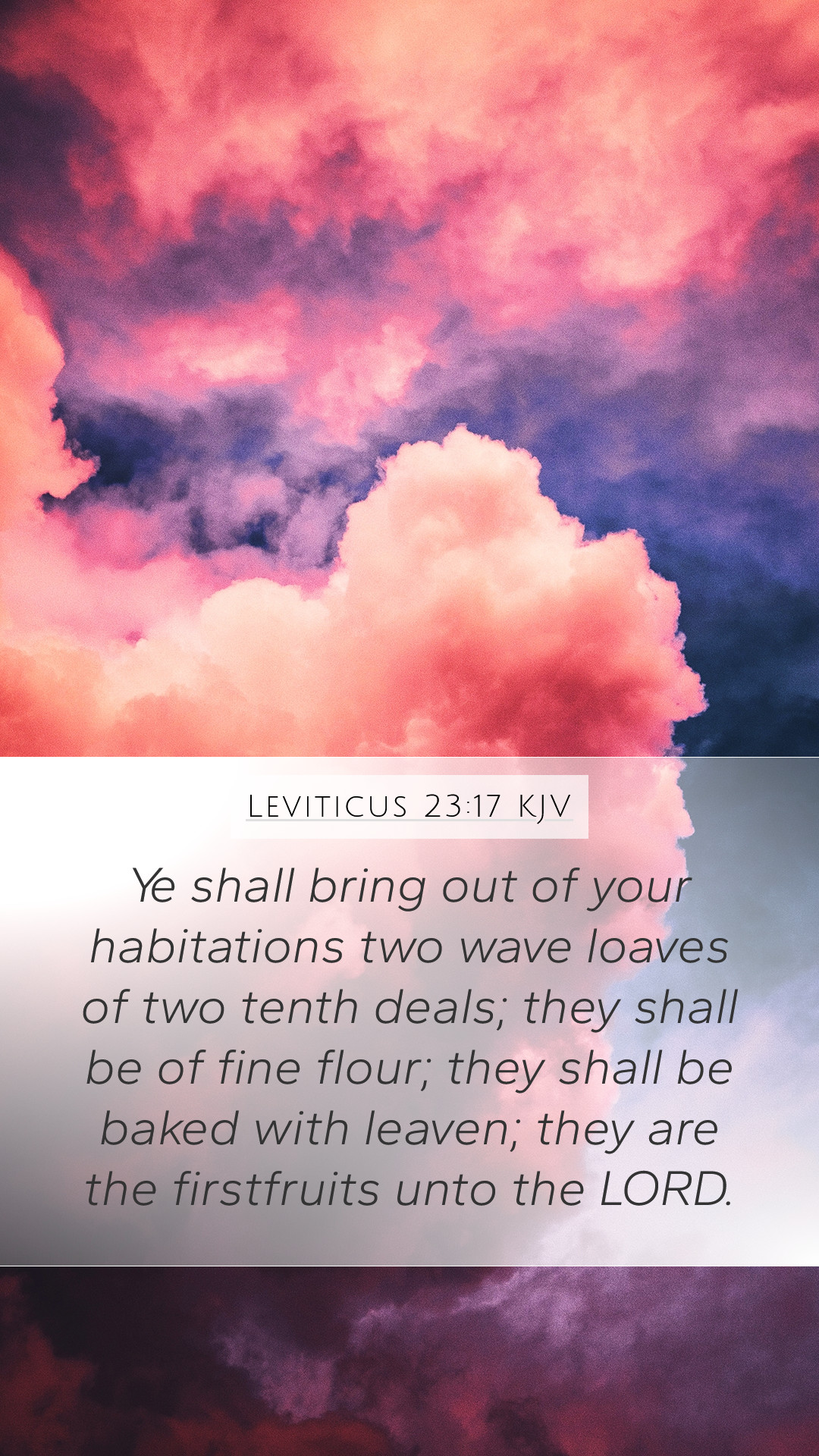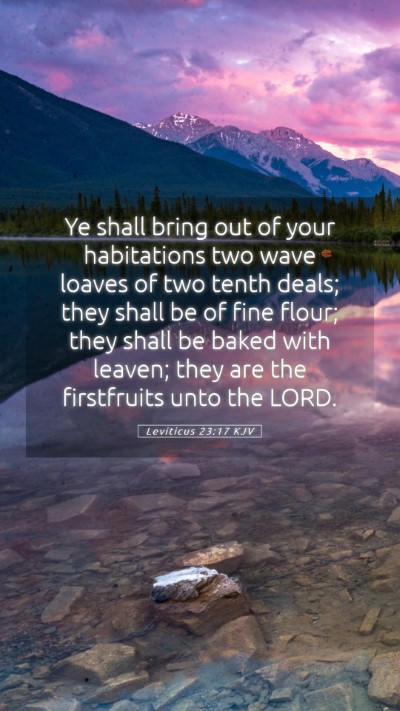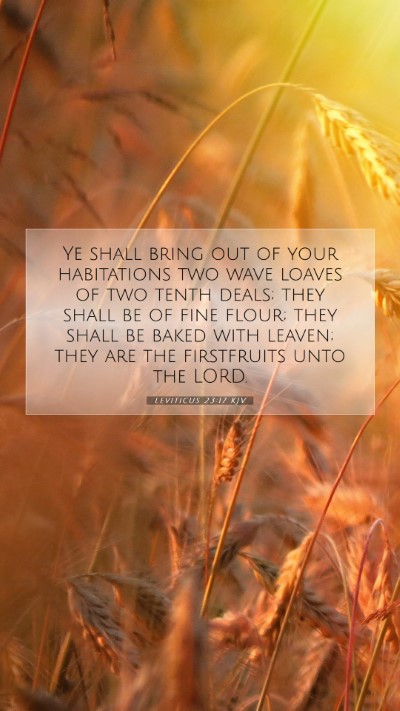Understanding Leviticus 23:17
Leviticus 23:17 states, “You shall bring from your dwellings two wave loaves of two-tenths of an ephah; they shall be of fine flour, they shall be baked with leaven. They are the firstfruits to the Lord.” This verse is central to understanding the Feast of Weeks (Shavuot), celebrating the harvest and the giving of the Law.
Bible Verse Explanations
In this verse, God outlines the specific requirements for the bringing of offerings during the Feast of Weeks, emphasizing their significance in the covenantal relationship between Him and His people.
Bible Verse Commentary Insights
- Matthew Henry: Suggests the wave loaves symbolize the acknowledgment of God’s provision and blessings in the harvest. They serve as a reminder of the sustenance provided by God and the gratitude owed to Him.
- Albert Barnes: Explains that the use of leaven in the loaves indicates a representation of the imperfections of human life, suggesting that we come to God with both our gifts and our flaws, recognizing His grace.
- Adam Clarke: Points out the importance of firstfruits, highlighting that they were a way for the people to express their gratitude and dedication to God, acknowledging that everything they had came from Him.
Meaning of Bible Verses in Context
The context of Leviticus 23 is crucial as it details the various feasts appointed by God, each with its own prophetic significance and place in the Israelite calendar. The Feast of Weeks not only celebrates agricultural bounty but also points to deeper spiritual truths about God's ongoing relationship with humanity.
Historical Context of This Scripture
Historically, this command was given to the Israelites during their wandering in the wilderness after the Exodus from Egypt, a time when God was establishing a community that would reflect His holiness and serve as a light to the nations.
Key Themes and Applications
Some key themes derived from Leviticus 23:17 include:
- Gratitude and Acknowledgment: Just as the Israelites were to offer the firstfruits, believers today are called to acknowledge God in all aspects of life.
- Community and Worship: The act of bringing offerings was communal, reinforcing the bond among the people and their collective relationship with God.
- Symbolism of Leaven: Leaven, often associated with sin, encourages believers to bring their whole selves—imperfections and all—before God as an act of worship.
Relating Leviticus 23:17 to New Testament Teachings
The concept of firstfruits carries over into the New Testament, where Christ is referred to as the firstfruits of those resurrected (1 Corinthians 15:20), indicating that just as the wave loaves represented the offerings of the people, Jesus represents the ultimate offering for sin.
Bible Cross References
- 1 Corinthians 15:20-23 - Christ as the firstfruits of those who have died.
- Exodus 23:19 - Instructions about bringing the first of the firstfruits to God.
- James 1:18 - The concept of being a kind of firstfruits of God's creatures.
Bible Verse Analysis and Study Insights
When examining this verse, it's essential to consider the broader implications of what “firstfruits” mean both in a historical and a spiritual context. It serves to inspire believers to not only bring their best to God but also reflects on their lives as offerings characterized by thanksgiving and grace.
Conclusion
In closing, Leviticus 23:17 serves as a powerful reminder of how God desires to be acknowledged and honored, not just during specific harvest seasons but continuously in the life of His followers. Engaging deeply with this verse can lead one to a more profound understanding of God's provisions and the richness of biblical teachings related to worship, community, and grace.


